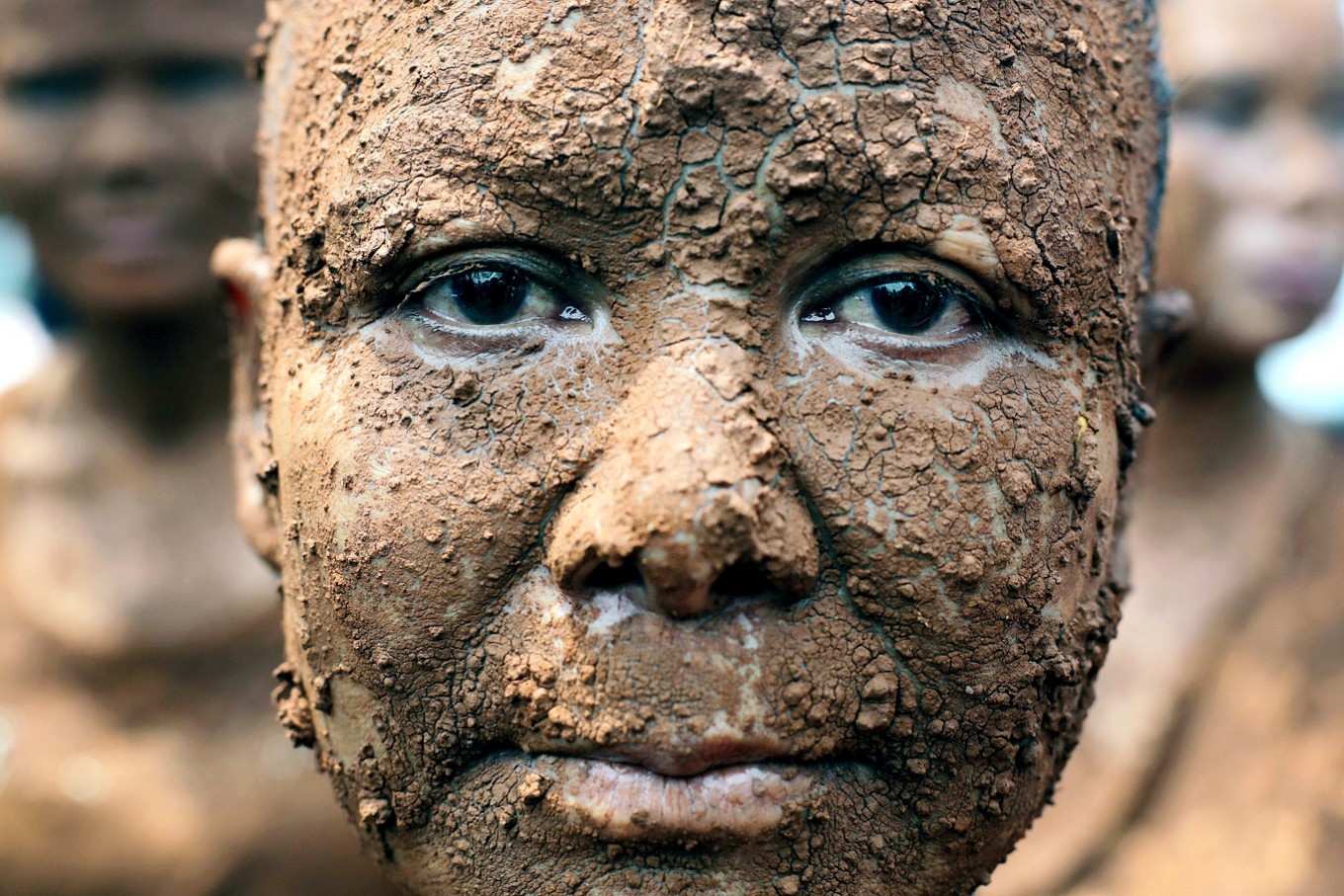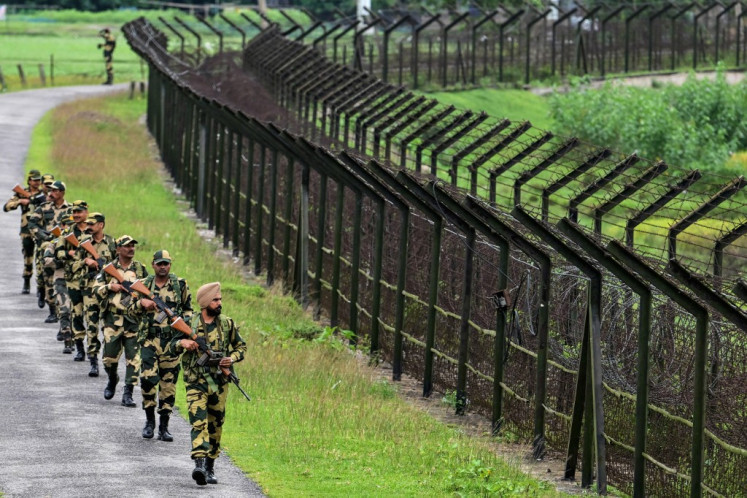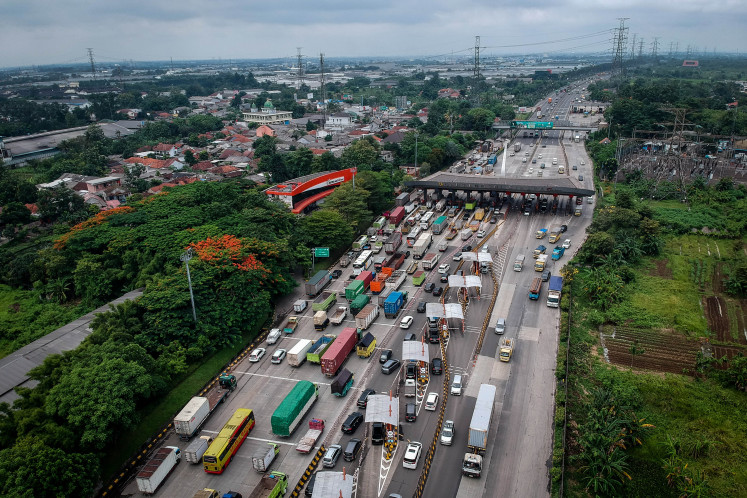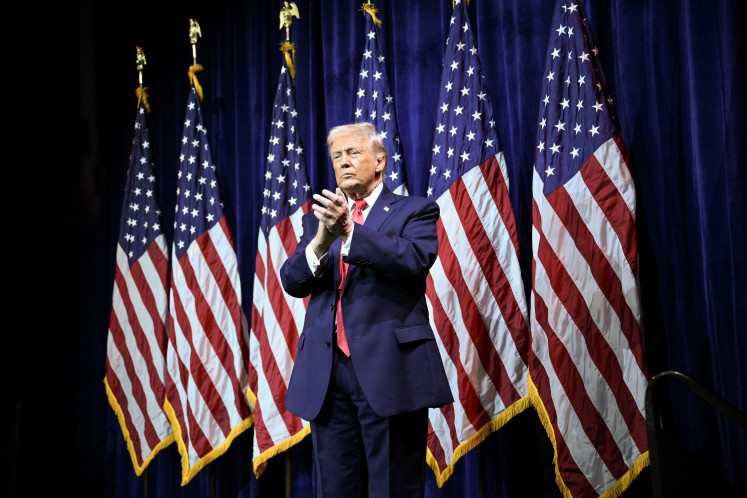Popular Reads
Top Results
Can't find what you're looking for?
View all search resultsPopular Reads
Top Results
Can't find what you're looking for?
View all search resultsHuman rights at risk for ASEAN citizens
All 10 ASEAN countries have dismal civic space ratings, with five countries identified as “obstructed” (Indonesia, Philippines, Malaysia, Singapore, Brunei) three as “repressed” (Thailand, Myanmar, Cambodia) and two which are completely “closed” (Vietnam and Laos).
Change text size
Gift Premium Articles
to Anyone
A
s the 10 heads of state from ASEAN gather for the group’s latest summit in Singapore this week to discuss security, trade, and tensions in the South China Sea, the state of human rights and democracy in the region will once again be sidelined.
For many, it will come as no surprise that ASEAN leaders, who have been called by Human Rights Watch as “a club of cozy dictators or rights abusers”, would shun any discussion on the rights of their citizens. Since the last bi-annual summit in the Philippines in November, the region’s 640 million citizens have faced unrelenting attacks on their core civic and democratic rights.
In Cambodia, Hun Sen’s regime has moved to dismantle the main opposition party, the Cambodia National Rescue Party (CNRP), and jail its’ leader, in the run up to July’s elections. In the same period, the Philippines announced its withdrawal from the International Criminal Court, after the body announced an investigation into President Duterte’s bloody war on drugs. As the summit approaches, it’s near four years since the Thai military junta seized power.
At the same time, no credible solution has been found to address the brutal crackdown against the Rohingya which left around 700,000 people displaced, as the bloc has shielded Myanmar from criticism.
Furthermore, after a decade in existence, the ASEAN Inter-Governmental Commission on Human Rights (AICHR) continues to lack the political will or the consensus to address threats to fundamental freedoms, despite some commissioners attempting to push the boundaries.
This unfortunate reality is reflected in research and analysis undertaken by the CIVICUS Monitor — a platform used to track developments related to citizen rights and civic space in 198 countries.
All 10 ASEAN countries have dismal civic space ratings, with five countries identified as “obstructed” (Indonesia, Philippines, Malaysia, Singapore, Brunei) three as “repressed” (Thailand, Myanmar, Cambodia) and two which are completely “closed” (Vietnam and Laos).
Our findings show that the threat to fundamental freedoms in the ASEAN region is intensifying and has manifested itself in various ways over the last year.
This includes the use of restrictive laws and decrees against critics, the assault on the media and the targeting of civil society.
Restrictive legislation continues to be introduced or implemented in the ASEAN region to stifle freedom of expression, assembly and association.
In Malaysia, just a month ago the authorities bulldozed an anti-fake news law through parliament which many believe will be used to suppress critical thinking and dissent.
There will be no protests outside the gates of the ASEAN summit, as Singapore’s legislators amended its draconian Public Order Act to further limit people’s right to hold public protests and public assemblies.
Meanwhile, Cambodia has begun to implement the controversial law on NGOs (LANGO) to silence civil society, most notably with the banning of the watchdog election monitoring platform, Situation Room, comprised of 40 local NGOS in July.
ASEAN governments have also intensified their assault on the media and journalists, many of whom are on the frontlines of exposing abuses by state officials and private actors.
Two Reuters journalists in Myanmar have been behind bars since Dec. 12, 2017, facing trial because of their investigations into atrocities committed against the Rohingya people by the security forces.
In the Philippines, President Duterte has attempted to stifle the media by moving to shut down the online news organization Rappler, because of allegations of foreign ownership.
Rappler has been fearless in holding those in power to account and are known for their in-depth investigative reporting.
ASEAN governments also regularly vilify civil society activists or paint them as national security threats in order to silence them. Many of the activists being jailed in Vietnam have been charged for “conducting anti-state propaganda”.
These include pro-democracy, environmental activists as well as minority rights activists.
In the Philippines, the government has brazenly accused land rights and indigenous rights activists of being involved in terrorism.
Those accused include Victoria Tauli-Corpuz, UN Special Rapporteur on the rights of indigenous peoples and a Philippines national.
We are seeing similar patterns playing out in Indonesia, despite the relative openness and better protections for freedom of expression.
In March, lawmakers introduced a new law known as MD3 which can be used to prosecute and jail anyone who “disrespects” the country’s parliamentarians.
The Electronic Information and Transactions (ITE) Law has been increasingly used to investigate and criminalize online expression, including of journalists, for defamation.
In an attempt to silence people’s participation in development projects, anti-mining activist, known as Budi Pego, was sentenced to 10 months imprisonment in January for “spreading Communist ideology”.
Despite this onslaught, we are also seeing civil society in ASEAN fighting back and building resolute resistance, like in many other parts of the word.
Thai activists, despite harassment and arrests, continue to come out onto the streets to demand the military government not to delay a general election scheduled for November.
Cambodians living overseas have increased their activism since the government crackdown on dissent at home began last year. In Myanmar, civil society is not only taking on the government but also Facebook for turning a blind eye to hate speech.
In Indonesia, anti-graft activist Novel Baswedan who was half-blinded in an acid attack, 10 months ago is back at work. “Let’s stay focused. Stay brave”, he told colleagues in a video posted online.
ASEAN leaders meeting this week in Singapore have a stark choice. They can either continue to ignore and suppress the voices of civil society or they can take the brave step to build a more inclusive vision for the region.
They can do that by attaching as much value on human rights as they do on economic growth and security.
***
Ichal Supriadi is secretary-general of the Asia Democracy Network (ADN) based in Bangkok. Josef Benedict is a researcher on civic space for the CIVICUS Monitor focusing on the Asia-Pacific.
Interested in more premium articles like this? Click here to subscribe for full access, which starts from $11 a month.










